Select your country
Websites worldwide
Select a country to go to the website of the respective STADA sales company.
Australia (1)
Belarus (1)
Belgium (1)
Bosnia-Herzegovina (1)
Bulgaria (1)
China (1)
Croatia (1)
Czech Republic (2)
Denmark (1)
France (1)
Hungary (1)
Ireland (1)
Italy (1)
Montenegro (1)
Netherlands (2)
Poland (1)
Portugal (1)
Romania (1)
Saudi Arabia (1)
Serbia (1)
Slovakia (1)
Slovenia (1)
Spain (1)
Switzerland (1)
The Phillippines (1)
United Arab Emirates (1)
United Kingdom (3)
Vietnam (2)

Prevention
How important is health prevention for Europeans?
Described by the WHO as the triad of health literacy, early detection and behaviours that support a healthy body and mind, health prevention is a cornerstone of the wellbeing and overall satisfaction of the population.
So far, so good – but are Europeans taking it seriously (enough)? How worried are they about being affected by serious diseases?
What is the overall status quo of preventive healthcare in Europe? Are Europeans aware of check-ups they should attend, and do they know which are covered under their respective national health services?
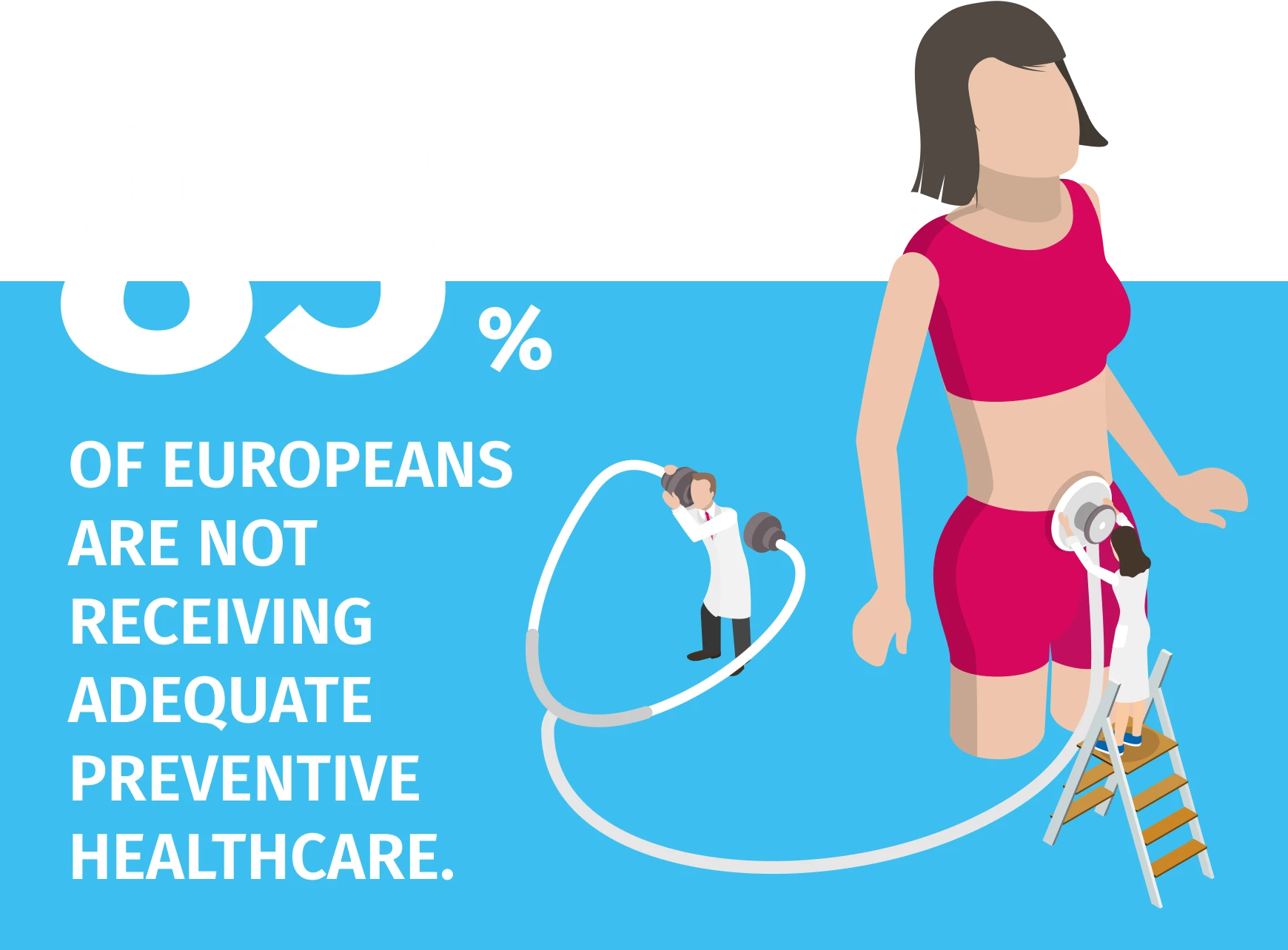
Almost 9 in 10 Europeans do not receive adequate preventive healthcare
A disclaimer: preconditions for preventive healthcare differ greatly across different European countries.
Not only in terms of the programmes that are offered, but also the individual age recommendations and intervals in which preventive health checks take place.
Additionally, some countries offer a great range of regular check-ups free of charge for all, some require patients to cover some or all cost unless they belong to a specific at-risk group.

4 in 10 Europeans (42 percent) do not attend any preventive health check-ups. Of the remaining 58 percent, only 15 percent can confidently say they attend all appointments that are relevant to them. In Uzbekistan, however, 38 percent claim they regularly attend all relevant preventive appointments. Following this self-assessment, 85 percent of Europeans are not receiving adequate preventive healthcare. Looking only at the number of people who do not attend any check-ups at all, Serbia and Poland (62 each) and Romania (60) lead the way, meaning that almost 2 in 3 people in these countries do not get any check-ups at all.
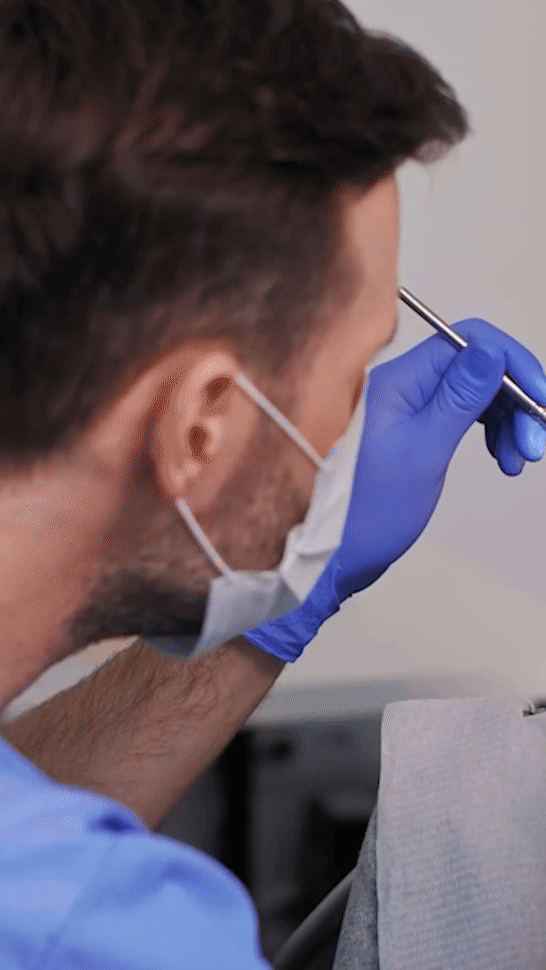
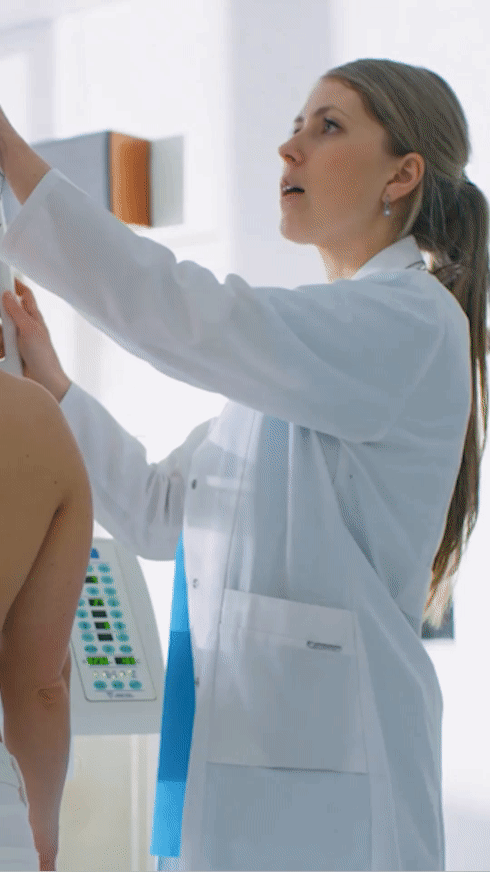
Only 1 in 2 women get regular checks for breast cancer
The most frequent screening procedure for women in Europe is the gynaecological check-up, with 68 percent saying they usually have one. In some countries, this might in part be due to regulations requiring women to both personally pick up prescriptions for contraceptive medication at their GP’s or gynaecologists’ surgery, and undergo regular check-ups to obtain such a prescription in the first place.
In the Czech Republic, almost 9 in 10 women (88) say they regularly attend gynaecological check-ups. Austrians (85) and the Swiss (83) also take them very seriously – almost twice as seriously as women in the Netherlands and Uzbekistan (42 each) or the UK (43).
Source: https://ecis.jrc.ec.europa.eu/pdf/Breast_cancer_factsheet-Oct_2020.pdf
Men’s health checks even less frequented than women’s
Compared to women (62 percent), European men are generally less likely to attend all or at least some of the preventive check-ups available to them (53).
The most frequently sought check-ups for cancer detection in men are screenings for prostate (32) and bowel cancer (31).
For prostate cancer, Austrians lead by example with 48 percent of men attending appointments, together with Portugal (44) and Germany (42). Checks for bowel cancer are taken most seriously by men in Belgium (46), France and Spain (42).
In accordance with most country’s recommendations, attendance rates for both cancer types increase with age. Early detection for testicular cancer, which is considered the most frequent type of cancer among young men, however, is only considered by 13 percent of men aged 18-34.
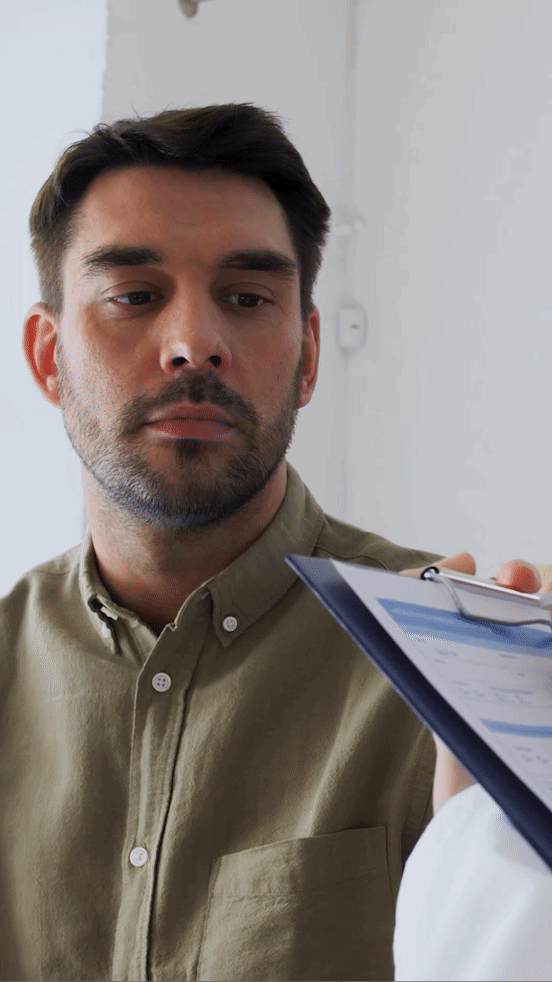
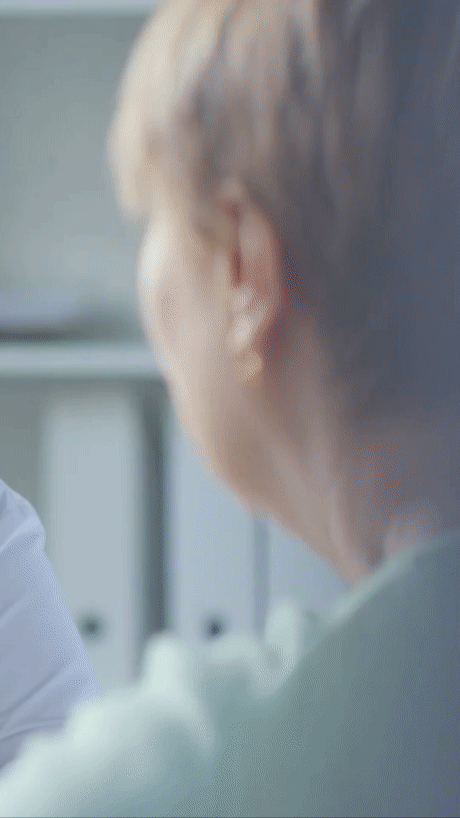
Lack of education and cost main barriers for preventive health screenings
The weighting of motivations to take check-ups seriously varies significantly between European countries. The conviction that preventive health screenings are important and therefore useful is reason enough for 62 percent of Europeans to get screened. Personal experience, i.e. having had a health issue detected by a screening in the past, drives 1 in 3 Europeans (35) to their doctor. Personal experience is particularly important for people in the Czech Republic (68), Poland (57) and Uzbekistan (56).
Looking more closely at the 42 percent of Europeans who say they do not attend any type of health screening, lack of education or knowledge and cost appear to be the main barriers to increased levels of prevention.
1 in 3 Europeans (32) admit that they do not know which check-ups they should or can have, depending on their age, gender, insurance status and public healthcare model. This is particularly true in the Czech Republic (40), Portugal (38) and Spain (36). Cost is also an issue for 1 in 4 Europeans (23) – in Romania (42) and Serbia (38), healthcare bills are the main reason people do not attend preventive screenings.
A further 22 percent think screenings are unnecessary, and 16 percent struggle to make time for them. The fear of getting a bad diagnosis keeps 13 percent from attending, and the same number feel uncomfortable with preventive check-ups











